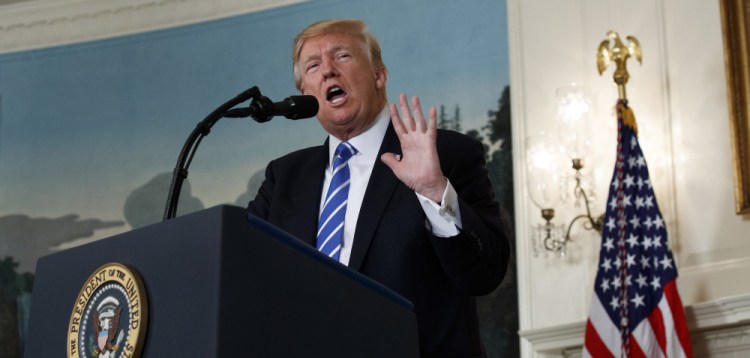Ten months into the Trump presidency, there is no wall, tax reform is in limbo and Obamacare remains the law of the land. But there is one area where Donald Trump is very much fulfilling his campaign pledge – and its impact will certainly outlast him.
The president and the Republican-controlled Senate are filling judicial vacancies in the federal courts with great speed. Many of the nominees are professionally and ethically qualified for these lifetime appointments. Others, to be generous, are not.
Falling in the latter category is Brent Talley, a 36-year-old Department of Justice official who has practiced law for just three years and has never tried a case. He has received a rare “unqualified” designation from the American Bar Association. What’s more, in papers submitted to Congress, he failed to disclose that his wife is a White House staffer.
But Talley is young and can cast conservative votes well into the future, so he is a good fit for the Trump administration’s plan to transform the judiciary into a partisan battlefield favorable to Republicans.
For Americans concerned with an unbiased, cautious and thoughtful justice system oriented toward protecting constitutional rights, that’s bad news. And Talley is only one of many bad nominees, some of whom are a far better fit for low-rent right-wing blogs than a federal bench.
One nominee, Damien Schiff, has called Supreme Court Justice Anthony Kennedy a “judicial prostitute”; he also disagreed with a ruling that overturned all state laws banning private sexual activity by consenting same-sex couples. Another, Jeff Mateer, once described transgender children as part of “Satan’s plan.” Mark Norris has implied that all Muslims are terrorists, and spoken out against rights for lesbian, gay, bisexual and transgender Americans, African-Americans, Latinos and refugees.
And that’s just a sample.
The administration is pushing forward these nominees without the reviews and bipartisan checks and balances typical of the process in the past. (Also, of the nearly 60 nominations so far, 74 percent are white men, hardly representative of the country as a whole.)
Trump has already approved eight appellate judges and could put in place dozens more – on top of the vacancies left under the Obama administration when the Republican-controlled Senate blocked confirmations, many judges are reaching retirement. Democrats, who abolished fillibuster rules when in power, now won’t be able to stop him.
That is particularly significant in the appellate courts, which are often the last word on politically charged cases. Appellate courts have in the last year alone rejected Trump’s travel ban and transgender military ban. They will hear cases on gerrymandering, public unions and religious freedom.
Those cases and the many others handled by federal courts should be heard by careful and thoughtful judges intent on applying the law, not by bomb-throwers who have already made up their minds. Unfortunately, the court system may be trending toward the latter.
When Democrats changed the filibuster rules, they erased the incentive to work across the aisle to confirm good judges. Why do that when the presidency and a narrow Senate majority means you can put in place whomever you like?
That’s troublesome even if only the best candidates are put forward. With nominees like Talley, it could be a disaster.
Republican senators, such as Maine’s Susan Collins, have an obligation to stand up for a competent, ethical and conscientious judiciary. Whether Donald Trump is president for another seven weeks or seven years, the rest of us will have to live with these judges for decades.
Send questions/comments to the editors.


